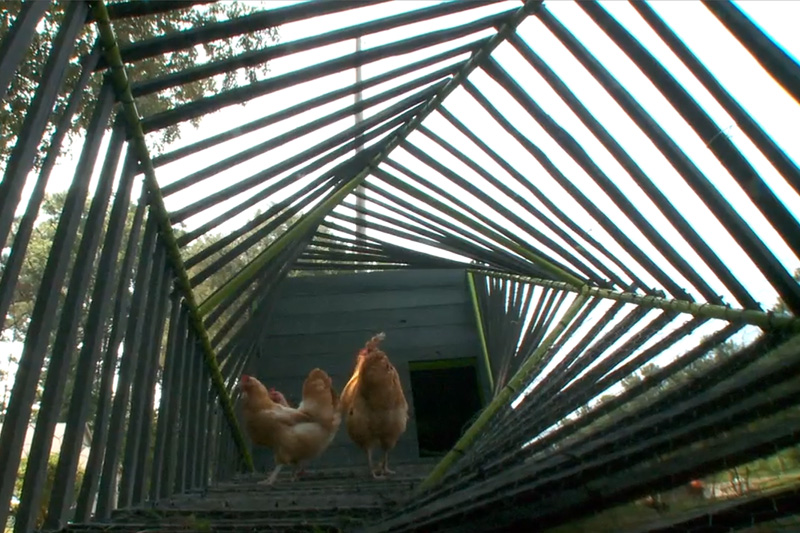
Réka Kovács
Film: If You Build It (Patrick Creadon, 2013, 86’)
Satudray 7 March – 17:15
The hackneyed phrases related to teachers like ‘sowing the seeds’ or ‘founding the future’ get an update and shiny new meanings by this film. Even literally. As Emily Pilloton, project owner of Studo-H (and high school teacher) puts it after her schoolyear: “it wasn’t for nothing”.
So there is a determined design nomad couple with a precisely made up curriculum, invited to the poorest (and dustiest) county of North Carolina by the progressive local superintendent. Poorest county or not, there is also a pick-up driving, spotty-faced group of kids, representing all the stereotypes of the American countyside youngsters – even their speech needs to be subtitled a few times.
‘Together We Can!’ – declares a sign in the council room of the local school board. The place where the board members decide to suspend the superintendent, along with all the projects proposed by him, just after Pilloton’s and Matt Millers’ class being started.
However they stay, and this is how we are given the opportunity to wit-ness this supposedly boring, familiar progress: the growing of the ‘stalk’, the ‘planting’, the ‘building in’. Director Patrick Creadon’s camera records exactly those teenager gestures: smeared rejoice, shy smiles, that are able to make us understand with the heart and mind, and once and for all, what the job of a great teacher can mean to the world. The message definitely has an underlined importance with design involved in the story.
After placing spectacular, visionary chicken coops around the small town followed by the growing interest of the residents, the group goes ahead to develop a conception and to design a real building for the local farmers’ market.
It’s not only the young individual’s success at stake (by learning to read a blueprint, to weld, to be able to think in stages of a process, to own a purpose, to build a life), it’s also the long term progress and success of a local community by offering them a solution for a current problem.
And this can be seen in the teens’ workshop: by the time the winning concept is being chosen from the individual designs, the question of proprietary and common is not a question anymore for this very group of students. And the real challenges, real responsibility, real construction with the power of real changes being experienced bring hundredfold harvest on this dry and dull (?) plain of North Carolina.
On the local council’s website a professional building photo of the farmers’ market can be found today. Built at the expense of the hard struggle presented in the film, now pride of the town. It’s the same local council that did not grant any kind of salary for Emily and Matt during their work, and never after their project had been carried out.
